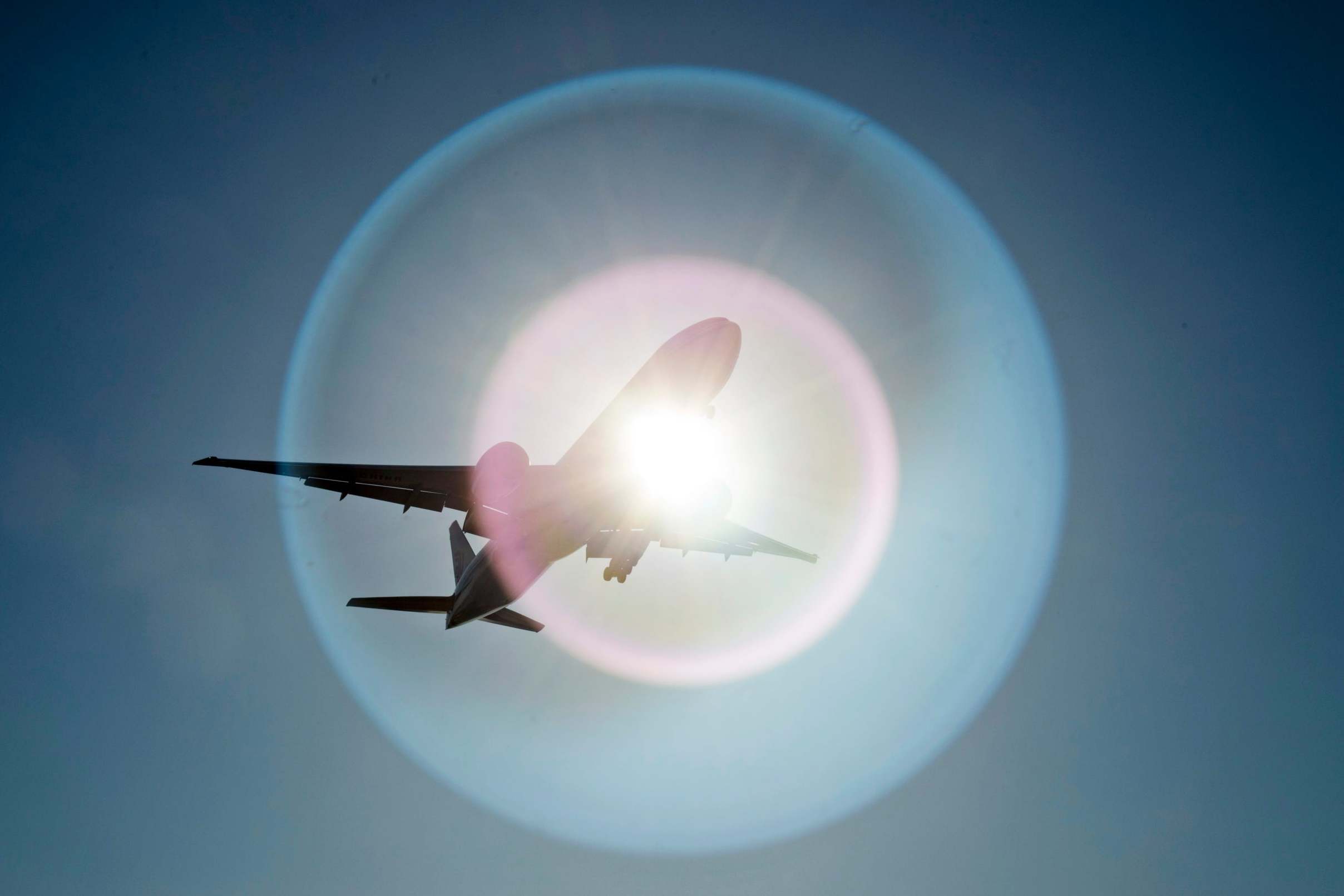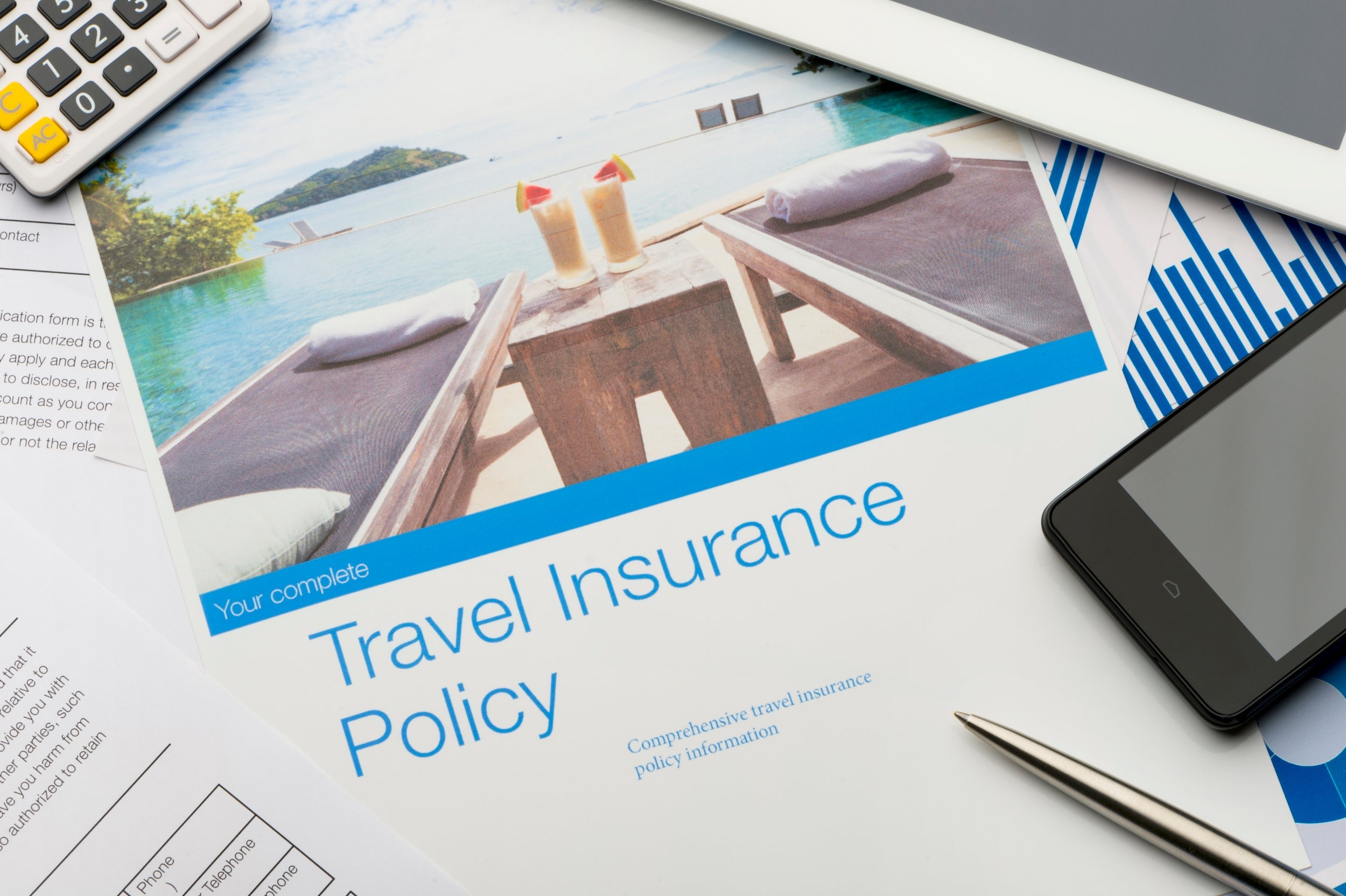What are my immediate chances of travelling to the US?
Simon Calder answers your questions on trips to the US and Italy, changing the departure airport for a rebooked flight, and new insurance policies


Q I need to travel to the US to attend to a family issue within the next few weeks. I am a British passport holder. Can you offer any advice?
Name supplied
A There are no restrictions for travellers who want to leave the UK. But in March, President Trump banned all visitors who had been in the Schengen Area (ie most of the European Union) and the UK in the previous two weeks.
Even to be allowed on board a plane, you would need to obtain special permission – which is nigh-impossible. You could try to enlist the support of your MP, and see if she or he can contact the Foreign Office on your behalf in order to try to secure an exemption from the very strict rules applying to non-Americans. This would require evidence of the important compassionate grounds of your planned visit.
Even with permission secured, the Department of Homeland Security says: “Those allowed entry to the USA must be prepared to self-isolate for up to 14 days after arrival.” As with the UK, there is no possibility to circumvent quarantine rules in the US with a test to confirm that you are coronavirus free.
Furthermore, even if you were able to reach the US, by going against Foreign Office advice you would invalidate travel insurance. And on return to the UK, the only way to reduce the two weeks of quarantine is to leave the country again. So as things stand I am afraid I am not at all optimistic about your chances.
But if the family matter can wait for a fortnight, I think the hurdles may look less intimidating. I expect the Foreign Office blanket travel warning to ease very soon.
The US might at last accept that, as it has a shockingly high level of local transmission of coronavirus, there is no point restricting visitors from Europe nor requiring them to self-isolate for two weeks. And the UK may well ease the quarantine rules – though, ironically, about the only major destination which poses a threat is the US.

Q In your opinion, how likely is it that holidays abroad will take place in July? I am booked to fly from Gatwick to Rome on 5 July with easyJet.
I am unlikely to be able to travel any time soon as I have pre-existing health conditions, so I am really hoping easyJet themselves will cancel so I can get a refund. I have only two days to accept a postponement.
Name supplied
A While I usually welcome the opening-up of travel as we emerge from this wretched time, in your case I am glad to report that the flight has been cancelled.
All easyJet’s flights from Gatwick to Rome on that Sunday are showing as “sold out”. You would be forgiven for thinking that this means all the seats have been booked. In fact, none of the three flights will be taking off.
In response to the slump in demand for travel caused by the coronavirus pandemic, and the UK government’s restrictions on travel, easyJet is cancelling many of its flights in July.
The first sign that yours has been axed is when you make a test booking for the same flight and see the message, “sold out”.
The airline says: “We list a flight as ‘sold out’ when it is full, or when no more seats are on sale because we are uncertain if it will operate.
“An increased number of flights are currently showing as sold out because, in light of Covid-19 and evolving travel restrictions, we do not have certainty that some flights will operate.”
In response to an expected slump in demand and continuing travel restrictions, easyJet is cancelling seven out of every 10 flights this summer. In a bid to try to minimise the cash flowing out of the business, the airline is seeking to persuade travellers to postpone their flights or accept a voucher. It typically sends out such an invitation a month before departure.
Assuming you do nothing, you will shortly be notified of the cancellation; easyJet says: “If you have an existing booking on a flight which now shows as ‘sold out’, we will be in touch at least 21 days before your departure date to confirm your travel details.”
Once a cancellation is confirmed, your rights are much stronger than if you voluntarily accept a change. The airline must offer a full cash refund, which in your case is exactly what you need. Other passengers may prefer for the airline to book them a replacement flight, which in this case might be Vueling from Gatwick or Alitalia from Heathrow to Rome.

Q If my airline cancels my flight and I ask them to find me a flight to get me to where I am going, can I pick a different departure airport or does it have to be the same airport as I booked with them?
Michael W
A Your question is most timely. Airlines including British Airways and easyJet are currently contacting many thousands of passengers to tell them that their summer flights have been cancelled.
When this happens, the cancelling carrier will be delighted if you are prepared to accept a different departure or a voucher for future travel on its services. This keeps your money in their bank. They may offer an incentive; on my most recent cancellation from easyJet, I was offered an extra £5 if I accepted a credit note.
However, as the cancelling airline is obliged to point out, under European air passengers’ rights rules it must offer you two further options that may well be more enticing: a full cash refund, or “re-routing, under comparable transport conditions, to their final destination”.
The most straightforward case will be when an airline cancels your flight from, say, Manchester to Rome, on which other carriers are still flying. The cancelling airline simply buys you a seat on a rival’s service.
The regulations are clear that if you were booked to, say, Rome’s Fiumicino airport, and the only suitable flight is to Ciampino in the Italian capital, the cancelling airline “shall bear the cost of transferring the passenger from that alternative airport either to that for which the booking was made, or to another close-by destination agreed with the passenger”.
Unfortunately there is no clarity about what happens if you were booked to fly from one of the London airports and you prefer to fly from another. That will be a discussion to have with the cancelling airline.
In the event that the carrier is not prepared to help with rebooking, you can go ahead and buy a ticket with a view to claiming the cost back – but that depends on you being reasonable.
For example, if an airline is no longer willing or able to fly you from Gatwick to Stockholm, you might consider SAS from Heathrow to the main airport in the Swedish capital. But if only business class at £500 is available on SAS when Ryanair has an alternative flight from Stansted to the distant airport, Skavsta, at £50, you would be expected to keep the cost down – but will be entitled to claim back also the local transport within Sweden.

Q My daughter’s travel insurance policy expires on Friday and she has a new policy in place to start immediately. If she needs to claim for flights in September regarding the current crisis, is it the old policy that she makes the claim on, even though it has expired?
Lorraine B
A Any claims after Friday should be made under the new policy. But it may not be quite the same as the old one.
The basic principle for annual travel insurance policies is that, so long as you ensure continuous cover, future trips remained insured. LV, for example, says: “Provided you renew your policy with us and have continuous cover, any trip can be covered indefinitely for cancellation.”
In the present extraordinary circumstances, many travel insurers are varying their conditions, with some stopping selling new policies altogether.
While normally an insurer will carry forward the terms of the original policy, as with any contract renewal the firm can modify the conditions and the customer can choose whether or not to accept them. It is by no means a safe bet to assume that your existing cover has simply been rolled over without any changes.
The standard view across the industry seems to be that cover for pandemic-related cancellations will not be included in future policies. Some, but not all, insurers are continuing to cover medical treatment for coronavirus that is diagnosed abroad – which I believe is a more important issue for most travellers.
Your daughter should have been informed about any changes. Note, however, that for visits within the EU before the end of the year, the European Health Insurance Card is still valid – and will provide medical treatment on the same basis as local people in public hospitals.
Finally, you mention a possible need “to claim for flights”. I am not sure what you have in mind here. If flights are cancelled, the airline must provide a full cash refund, and travel insurers will not consider such claims.
Email your question to s@hols.tv or tweet @simoncalder
Join our commenting forum
Join thought-provoking conversations, follow other Independent readers and see their replies
Comments